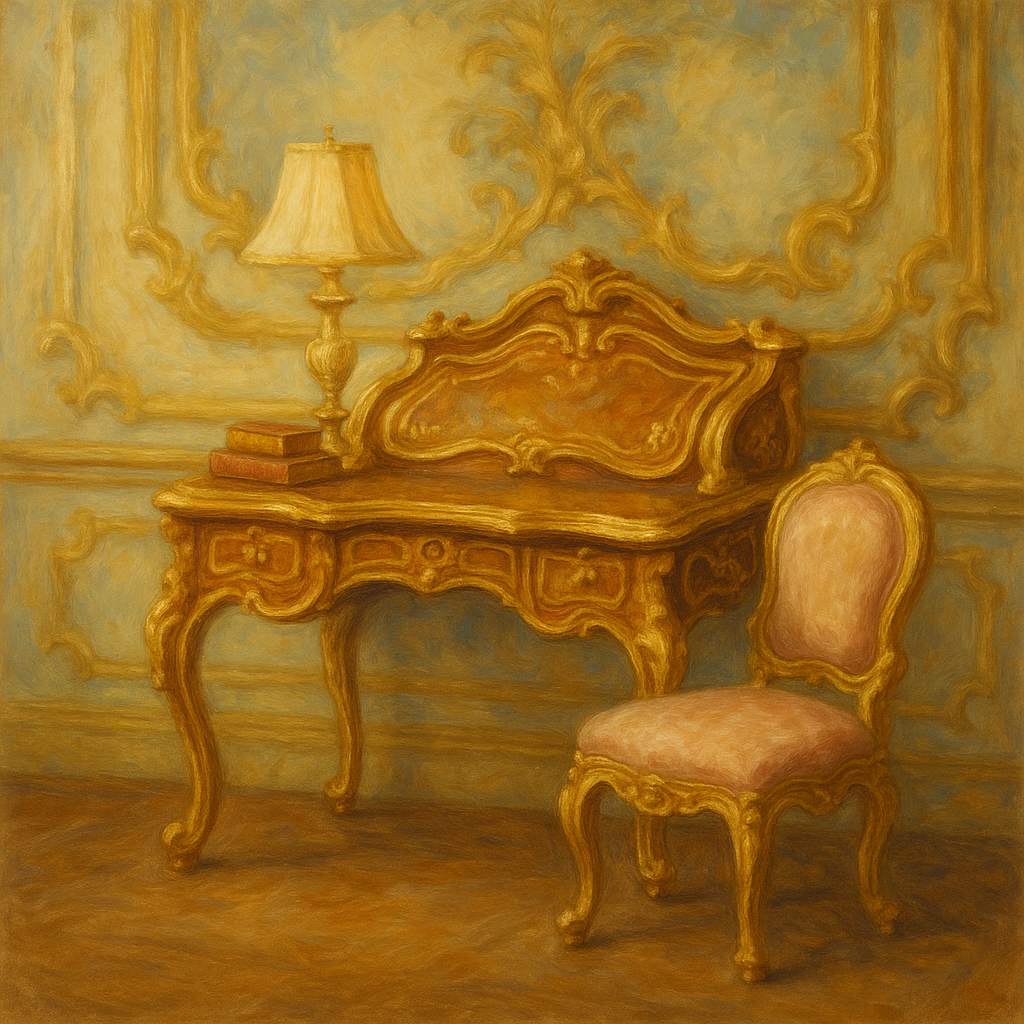The West did not invent the desk, but appropriated it with a flexibility that has endured to this day. For centuries, European power was exercised from the common table, where officials deliberated in the presence of the sovereign. It was in China, much earlier, where the literate official built his symbolic sphere on his own table, compartmentalized and filled with specialized utensils, organizing the space into precise hierarchies and priorities.
Europe would discover this later, and when it finally adopted the desk, it did so with a certain fascination; in the middle of the 17th century, while France was bleeding between Huguenots, rebellious nobles, and religious wars. This gave rise to the model of modern hyper-absolutism, as a formal solution for the state under the sovereignty of the king; in short: Richelieu and Mazarin first justified the concentration of power in that royal figure, embodied by Louis XIV.
This figure began to concentrate everything that was scattered, and in that concentration, the furniture became discourse; even theatrical or because of its own theatricality, the desk emerged as an emblem of rational administration. It was no longer the common council table, but the private surface of the minister, taming chaos with seals and regulations; but even more interesting is the hidden gesture, by which Europe projected onto China the order that it could not guarantee for itself.
The idealization of Eastern absolutism—harmonious, ritualistic, centralized—justified its own drive for control; the bureau, with its bento box logic, became enlightened furniture, just as porcelain became synonymous with state luxury. It did not matter that Qianlong—a contemporary of Louis XIV—had already exhausted the empire with his oppressive administration; what Europe admired was the form, unaware of its fatigue behind the immutable and functional face of the eunuchs.
Both systems mirrored each other without knowing it, taking to the extreme the idea of a central power that sees and commands everything; and both would end up drowning in that same excess, because absolutism—in its perfection—becomes wasteful. When the bureau no longer contains ideas but only forms, it becomes a symptom, programming only exhaustion; and in a more intimate and disturbing vein, the eunuchs fulfilled that role that consumes a person’s creativity.
Louis XIV tamed the nobility in the same spirit, symbolically castrating them, turning them into courtiers; he gave them positions—salaries instead of their own incomes—and rituals, taking away their autonomy and all personal projection. That figure, transferred to modernity, today takes on the soft and aseptic face of the manager and planner, the president; the professional middle class is the new eunuch-administrative caste, without power of its own, but essential to the functioning of the apparatus.
Sitting behind his desk, the manager does not inherit, does not decide, much less take risks, he only administers carefully; like the eunuch, he lives off access to power, not its exercise, which is also dangerous and fragile in his dependencies; Here, the desk—with its drawers, its geometry, its soulless order—is a silent altar on which everything is recorded; and thus, the history of the desk is that of the mutation of power, which goes from open conflict to administrative order.
Europe believed it was adopting the Asian form of order, but in reality it internalized its perennial fear of dissolution; the table became the world, because the world could no longer sustain itself without a table, without the chivalrous paradigm of the round table. We must never forget that, as a corporate nature, social structure is always centralizing and organic; but that—which in Asia manages to become absolute—in the West was a sacrilege that defied the will of the gods.
The gods—like reality—responded to the challenge with cataclysms that prevented these monstrous formations; from the very beginning in Crete, as an abomination that rose up and was forced to sleep in Mycenae. The expansion of trade was reality’s response to the pretensions of men, with the Phoenicians; hence the persistent difficulty of personal experience, which always breaks Eastern absolutism in the West; but as in Mycenae in the debacle of Crete, the monster does not die, but only sleeps withdrawn, and stretches in the state.




